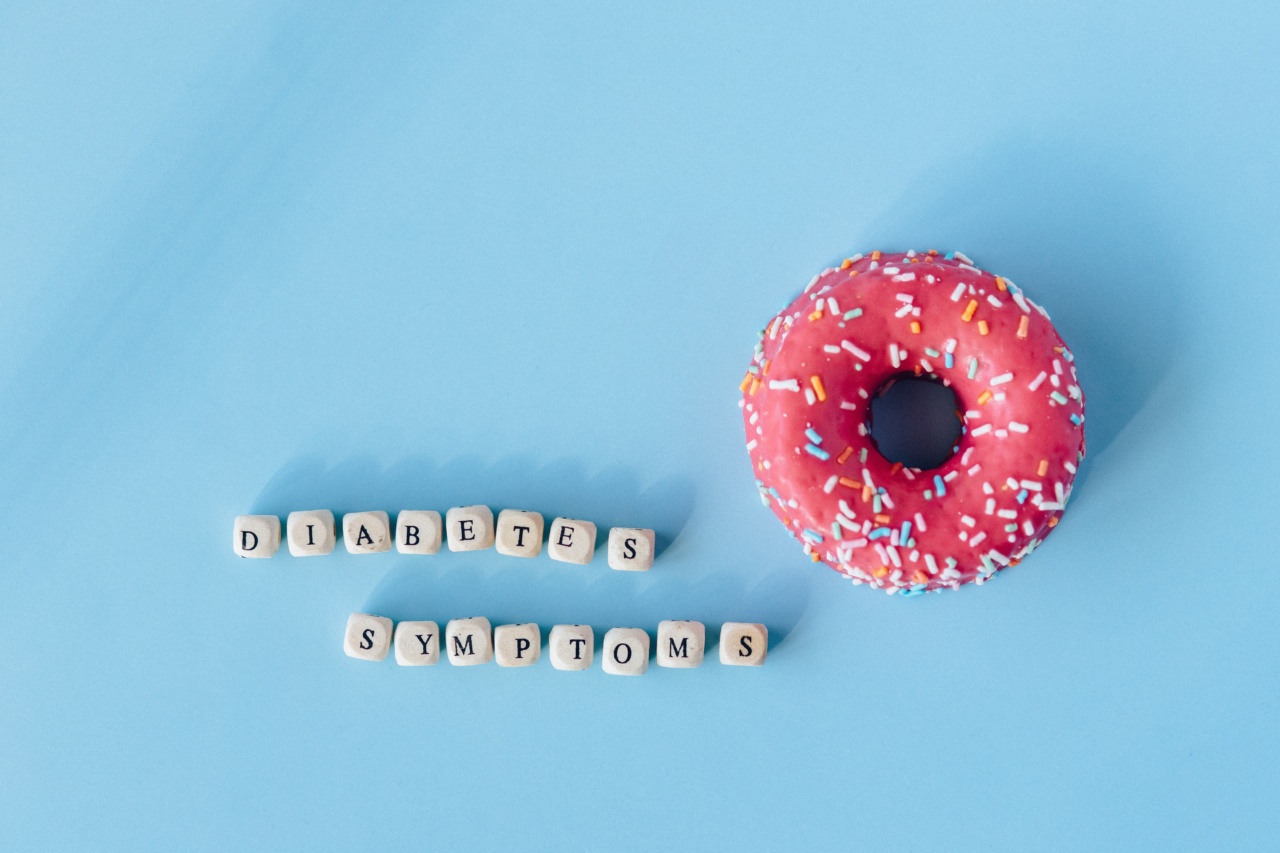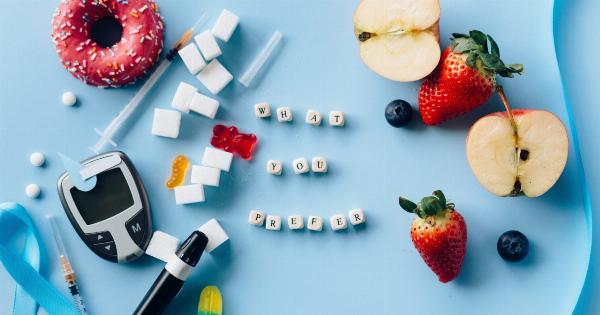Sugar is a common ingredient found in almost all types of food and beverages. While it adds sweetness to our lives, excessive consumption of sugar can have detrimental effects on our health.
For individuals with diabetes, managing sugar intake becomes even more critical.
The Importance of Understanding Sugar Limits
Diabetes is a condition characterized by high blood sugar levels. It occurs when the body either does not produce enough insulin or cannot effectively use the insulin it produces. As a result, sugar levels in the blood can become dangerously high.
Controlling sugar intake is vital to prevent complications and maintain stable blood sugar levels.
Sugar Limits for Diabetic Individuals
Type 1 Diabetes: Individuals with type 1 diabetes cannot produce insulin and require external insulin injections to regulate blood sugar levels. For these individuals, there are no specific sugar limits.
Instead, they need to focus on balancing their insulin levels with their carbohydrate intake. It is essential to consult with a healthcare professional or a registered dietitian to create a personalized meal plan that ensures proper insulin management.
Type 2 Diabetes: People with type 2 diabetes often have difficulty using insulin effectively. They need to monitor their sugar intake carefully.
According to the American Diabetes Association, individuals with type 2 diabetes should aim for no more than 25 grams (6 teaspoons) of added sugars per day. These added sugars include those found in processed foods, beverages, and desserts. It is advisable to opt for natural sources of sugar, such as fruits, as they provide additional nutritional benefits.
It is important to note that sugar limits vary based on individual factors such as age, activity level, and overall health. Working with a healthcare professional is crucial to determine an appropriate sugar intake limit tailored to personal needs.
Sugar Limits for Non-Diabetic Individuals
Non-diabetic individuals who do not have preexisting health conditions may not need to strictly monitor their sugar intake.
However, the World Health Organization (WHO) recommends limiting the consumption of added sugars to less than 10% of total energy intake. This recommendation applies to both adults and children.
For an average adult with a daily energy intake of 2000 calories, this translates to a maximum of 50 grams (12 teaspoons) of added sugars per day.
Keep in mind that this refers to added sugars and not naturally occurring sugars found in whole foods like fruits and vegetables.
Reducing sugar intake offers many health benefits, including weight management, reduced risk of heart disease, and improved dental health.
The Effects of Excessive Sugar Consumption
Whether diabetic or non-diabetic, excessive sugar consumption can lead to several health issues:.
1. Weight Gain: Sugar is high in calories and lacking in nutrients. Consuming sugary foods and drinks regularly can contribute to weight gain and obesity.
2. Increased Risk of Type 2 Diabetes: Excessive sugar consumption can lead to insulin resistance, increasing the likelihood of developing type 2 diabetes, particularly in individuals who are genetically predisposed.
3. Cardiovascular Problems: A diet high in added sugars can raise blood pressure, triglyceride levels, and inflammation, all of which are risk factors for heart disease.
4. Dental Issues: Sugar is one of the leading causes of tooth decay. The bacteria in the mouth feed on sugar, producing acids that erode tooth enamel and lead to cavities.
5. Impaired Cognitive Function: Some research suggests that excessive sugar consumption may impair memory and cognitive function, leading to difficulties in learning and retaining information.
6. Increased Risk of Chronic Diseases: High sugar intake is linked to an increased risk of chronic conditions, including certain types of cancer, fatty liver disease, and kidney disease.
7. Energy Crashes and Mood Swings: Consuming sugary foods and beverages can lead to rapid spikes and crashes in blood sugar levels, resulting in energy slumps and mood swings.
It is crucial for both diabetic and non-diabetic individuals to be aware of the potential risks associated with excessive sugar consumption and strive to maintain a balanced and nutritious diet.
Conclusion
Understanding the recommended sugar limits for diabetic and non-diabetic individuals plays a vital role in maintaining overall health and managing diabetes effectively.
Those with type 1 diabetes should focus on insulin management rather than strict sugar limits, while those with type 2 diabetes may need to limit added sugar intake to 25 grams per day. Non-diabetic individuals should aim to consume less than 50 grams of added sugars each day.
By being mindful of sugar intake and making healthier choices, individuals can reduce the risk of chronic diseases and lead a healthier and more fulfilling life.





























